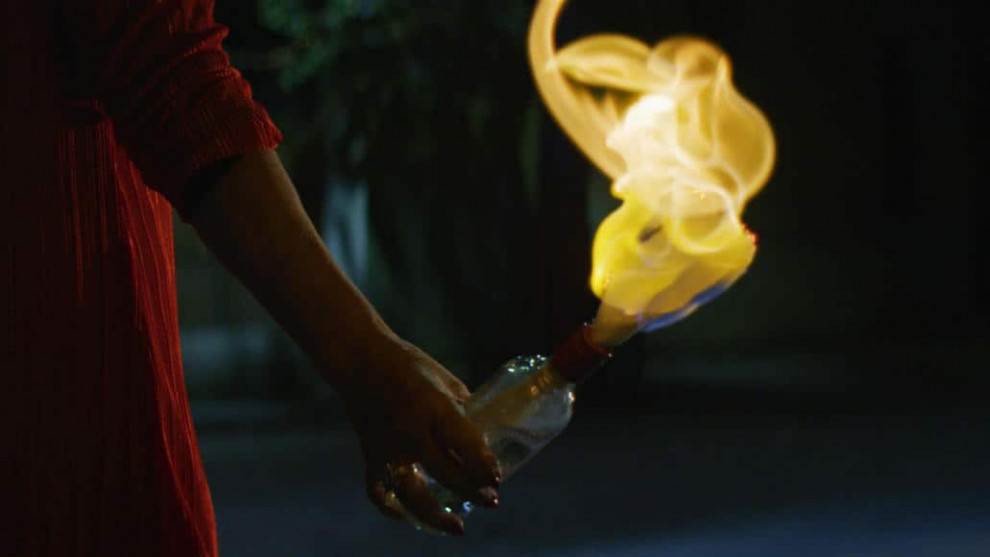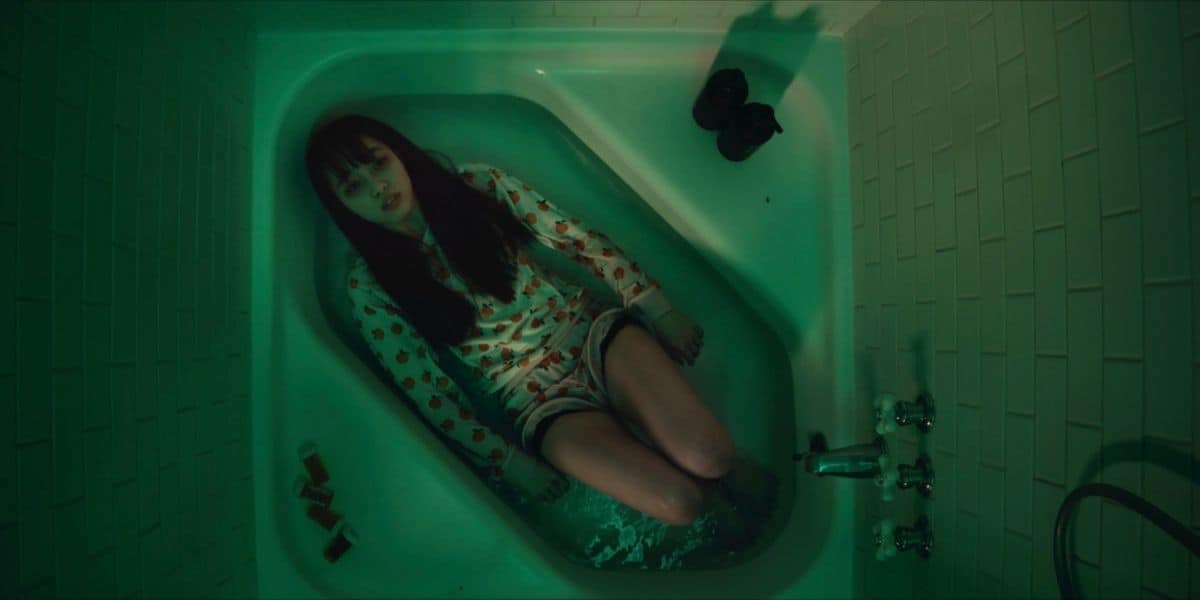After exacting revenge on an ex-lover by burning down his house, 66 years old Nona moves to a small coastal town to find peace and start a new life. However, fires begin to engulf her friends and neighbors' homes, sparking a police investigation. With Nona's past actions and with her hous, staying intact, the residents begin to become suspicious. The film unravels the many intriguing facets of Nonas' character through home movies and interactions within her new community.
“Nona. If They Soak Me, I'll Burn Them” is screening at the
International Film Festival Rotterdam 2019

“Nona” contains an interesting narrative structure which mixes a style of home videos shot on 18mm, with more slick theatrical style shot on digital. The home video portion acts as a way to deepen understanding of the protagonist and these intimate scenes bring a sense of adoration, an understanding of her struggles and appreciation for her strong will. “Nona” was in part inspired by Camila Jose Donoso's grandmother and it is apparent that the home movie captured this respect, as well as the respect many have for their grandparents. Although Nona's story is unique, these segments invoke a universal familiarity of cherished family bonds. These moments create a strong sense of identity and is arguably the highlight of the production.
The film shifts from a more personable focus in order to tell the aspect dealing with the crimes being committed, and these scenes are well executed and leave a strong impression The opening of Nona making a Molotov cocktail while discussing the process is a strong scene, smoothly shot and establishes a stylistic tone that intertwines with the more lo-fi family footage segments. Although it is appealing, that is not to say that this shift does not compliment the film. Unfortunately, even within success in two different styles, the mix does give the film a disorganized tone. Favoring the more intimate segments told through home videos, the transition into the more theatrical style acted as a determent to my overall experience.

The film's success, while containing a varied cast, rests heavily on the acting skills of Paula Dinamarca as the titular character. Although I would be hesitant to praise her acting skills given her limited experience, Dinamarca brings great sincerity into the part. I have an inclination that this comes from a natural charm that comes with age, which did make her an ideal choice for a role that asks for a deep respect of the older generations. Whether she is reminiscing on fond memories, speaking her world views, or even contorting the truth to save herself from the ire of her community going up in flames, the focus is always on her, and she commands that focus in entrancing way.

Where some may enjoy the more experimental story telling of mixing styles and narrative, it is really where “Nona” fails from my own personal enjoyment, making the film more of a slog, and is difficult to keep focused on the content during these shifts. However, reviewing different approaches on their own the execution is pretty impressive. Although the performance from Dinamarca is admirable and fascinating, it personally did not do enough to elevate the film beyond my struggle with shifting narrative and style. I don't feel all audiences would share my sentiments on these transitions, since individually, they are so well executed it is hard to say the film's structure is actually lacking in skill and is more up to personal preference. Much like the titular character, there are a lot of charm and sincerity to found in the production that will appeal to some audiences















